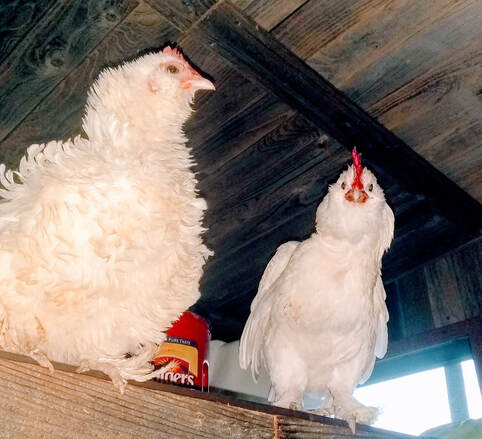These easy 7 steps in combination with a monthly dewormer and Food grade DE once a month, will keep your chickens worm and parasite free plus get great deals on poultry dewormers.

How to prevent worm infestations in your flock
The best way to keep your chickens from getting worms is by implementing this step by step prevention strategy below. Having and implementing a prevention strategy is most important since not all types of intestinal round worms are treatable, so it is critical that you create and maintain a preventative strategy to keep your chickens from getting intestinal worms in the first place.
Worm Prevention Strategy Step by Step
Provide a well-balanced diet
Provide fresh food and water
Keep litter clean and dry (worm eggs thrive in damp areas)
Clean and disinfect your poultry house regularly and always before you bring new chickens in.
Move your chicken coop to fresh ground every two weeks if possible.
Separate baby chicks, pullets, and adult birds
Use mesh floors to reduce contact with worm eggs in droppings
Reduce or eliminate contact with insects or animals that could be carrying parasites (Queensland, 1)
Make sure your birds have a place to take dirt baths in fresh tilled dirt
Deworm your chickens monthly
Keep your chickens in an area where they do not have access to other animal and bird's feces
Sprinkle Food grade DE (Diatomaceous Earth) into food for a few days each month. See best buys on poultry dewormers for chickens below.
The best way to keep your chickens from getting worms is by implementing this step by step prevention strategy below. Having and implementing a prevention strategy is most important since not all types of intestinal round worms are treatable, so it is critical that you create and maintain a preventative strategy to keep your chickens from getting intestinal worms in the first place.
Worm Prevention Strategy Step by Step
Provide a well-balanced diet
Provide fresh food and water
Keep litter clean and dry (worm eggs thrive in damp areas)
Clean and disinfect your poultry house regularly and always before you bring new chickens in.
Move your chicken coop to fresh ground every two weeks if possible.
Separate baby chicks, pullets, and adult birds
Use mesh floors to reduce contact with worm eggs in droppings
Reduce or eliminate contact with insects or animals that could be carrying parasites (Queensland, 1)
Make sure your birds have a place to take dirt baths in fresh tilled dirt
Deworm your chickens monthly
Keep your chickens in an area where they do not have access to other animal and bird's feces
Sprinkle Food grade DE (Diatomaceous Earth) into food for a few days each month. See best buys on poultry dewormers for chickens below.
More About Parasite Treatments for Chickens |
References
1. Worm parasites in poultry. Queensland government.(Aug. 27, 2012). http://www.daff.qld.gov.au/animal-industries/poultry/diseases-and-disorders/worm-parasites
2. Nematode Parasites-Download pdf version Nematode Parasites of Poultry (and where to find
them) Download pdf version http://edis.ifas.ufl.edu/pdffiles/PS/PS01200.pdf
1. Worm parasites in poultry. Queensland government.(Aug. 27, 2012). http://www.daff.qld.gov.au/animal-industries/poultry/diseases-and-disorders/worm-parasites
2. Nematode Parasites-Download pdf version Nematode Parasites of Poultry (and where to find
them) Download pdf version http://edis.ifas.ufl.edu/pdffiles/PS/PS01200.pdf

